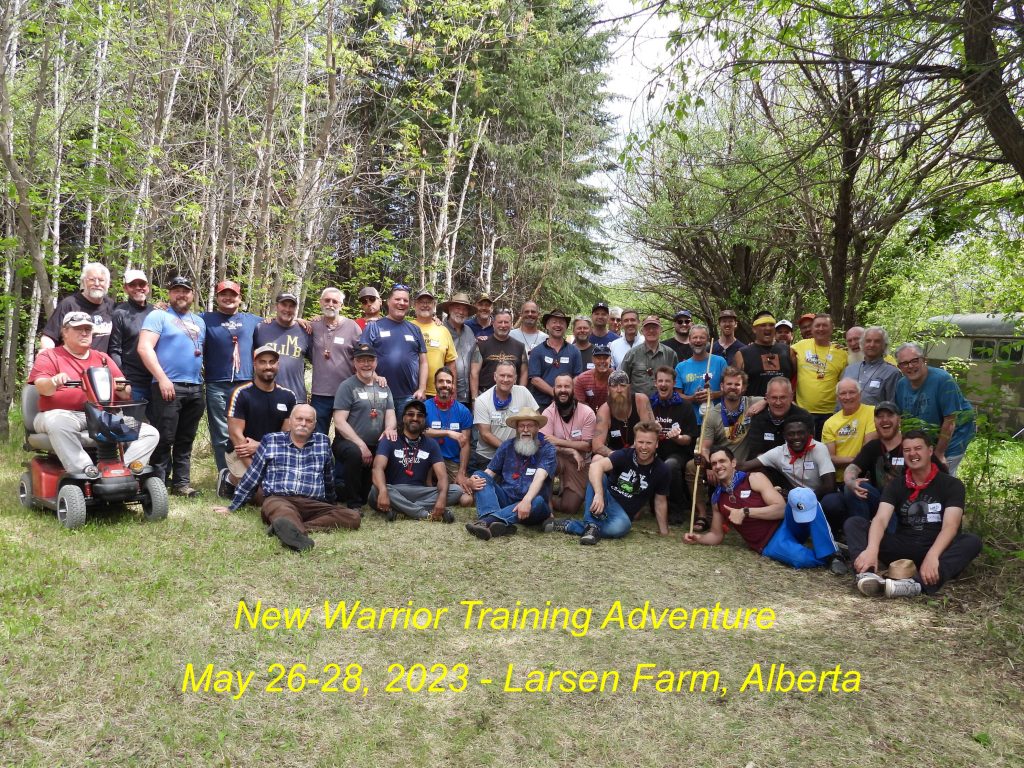
I recently spent time staffing a Men’s weekend called the New Warrior Training Adventure. Even though I have been on the path of personal development for almost 30 years. I still have uncovered and discovered many things about myself at the NWTA training I participated in November of 2018.
I am surprised at the pushback I have received from men when I invite them, as personal development has long been recognized as a valuable pursuit for individuals seeking growth, self-awareness, and fulfillment. However, it is evident that men have historically been slower to embrace the concept of personal development compared to women. I hope to shed light on some of the reasons behind this phenomenon, exploring societal factors and cultural expectations that have influenced men’s reluctance to engage in personal development work.
- Cultural Expectations of Masculinity:
Societal norms and expectations surrounding masculinity play a significant role in men’s hesitation to embrace personal development. Traditional gender roles often dictate that men should be strong, independent, and self-reliant, which can create barriers to seeking personal growth. Men may fear being perceived as weak or vulnerable if they express a need for personal development, as it may contradict societal expectations. The pressure to conform to masculine ideals may hinder men from exploring their emotions, embracing vulnerability, and engaging in introspection.
- Limited Emotional Expression:
Men have historically been discouraged from openly expressing their emotions. Society often encourages men to suppress or downplay their feelings, which can inhibit their willingness to engage in personal development work. Emotional intelligence and self-reflection, integral components of personal growth, have not traditionally been emphasized or valued in male socialization. Consequently, men may find it challenging to connect with their emotions and understand the significance of personal development in their lives.
- Stigma and Stereotypes:
Personal development pursuits have sometimes been stigmatized or stereotyped as feminine or New Age, further deterring men from actively participating. Misconceptions or stereotypes that associate personal growth with practices such as meditation, therapy, or self-help books can create a barrier for men who may perceive these activities as incompatible with their masculine identities. The fear of judgment or ridicule from peers can discourage men from exploring personal development opportunities openly.
- Lack of Role Models:
A scarcity of visible male role models who openly engage in personal development work can contribute to men’s reluctance. Men may struggle to find relatable figures who embody both strength and vulnerability, leading to a perception that personal development is not aligned with traditionally masculine ideals. The absence of male role models actively promoting personal growth can limit the exposure and understanding of its benefits within male communities.
- Fostering Brotherhood and Community:
In addition to personal development, men’s circles foster a sense of brotherhood and community. As men gather regularly to share their experiences and provide support to one another, enduring bonds are formed. This sense of belonging and connection creates a network of support that extends beyond the circle, offering a strong foundation for personal growth and accountability. The collective wisdom and diverse perspectives within the circle contribute to a rich and transformative experience for every participant.
Men’s circles hold immense importance in the realm of personal development, providing men with a safe and nurturing environment to uncover their true selves, explore their life purpose, and develop emotional intelligence. Through authentic connection, self-reflection, and the support of like-minded individuals, men can embark on a transformative journey of personal growth. By embracing men’s circles, men can cultivate a deeper understanding of themselves, foster meaningful relationships, and embark on a mission-driven life that aligns with their authentic selves.
List of men who practise or have participated in personal self-development
- Dwayne “The Rock” Johnson: Known for his successful career in both professional wrestling and acting, Dwayne Johnson is a strong advocate for personal development. He often shares his motivational journey, highlighting the importance of discipline, resilience, and self-improvement.
- LeBron James: As one of the greatest basketball players of all time, LeBron James is committed to personal growth and continuous improvement. He emphasizes the importance of mental toughness, leadership, and investing in one’s own development both on and off the court.
- Will Smith: Will Smith, renowned for his acting career, has been vocal about his personal development journey. He frequently shares insights on mindset, positivity, and personal growth, encouraging others to embrace self-improvement and strive for success.
- Arnold Schwarzenegger: Apart from his iconic roles in movies, Arnold Schwarzenegger has been dedicated to personal development and self-improvement throughout his life. He emphasizes the importance of goal-setting, discipline, and perseverance to achieve success.
- Kobe Bryant: The late Kobe Bryant, a basketball legend, was known for his relentless pursuit of personal and professional excellence. He embraced personal development, constantly seeking ways to improve his skills, mindset, and leadership abilities.
- Matthew McConaughey: Matthew McConaughey, an Academy Award-winning actor, has publicly discussed his personal development journey. He emphasizes the value of introspection, self-discovery, and personal growth in his life and work.
- Conor McGregor: As a professional mixed martial artist, Conor McGregor has demonstrated a strong commitment to personal development. He focuses on mindset, mental resilience, and visualization techniques to excel in his sport and personal life.
- Tom Brady: Tom Brady, one of the most accomplished quarterbacks in American football history, emphasizes the importance of personal growth and mental preparation. He has explored various personal development practices, including mindfulness and visualization, to enhance his performance.
- Russell Brand: Russell Brand, a comedian, actor, and author, has been open about his personal development journey. He has explored spirituality, mindfulness, and addiction recovery, sharing his experiences and insights with others.
- Usain Bolt: Usain Bolt, the world-record-holding sprinter and Olympic champion, recognizes the significance of personal development in achieving athletic greatness. He emphasizes the importance of discipline, self-belief, and continuous improvement in his pursuit of excellence.
Please note that this list is not exhaustive, and there are many more well know men who actively engage in personal self-development.
